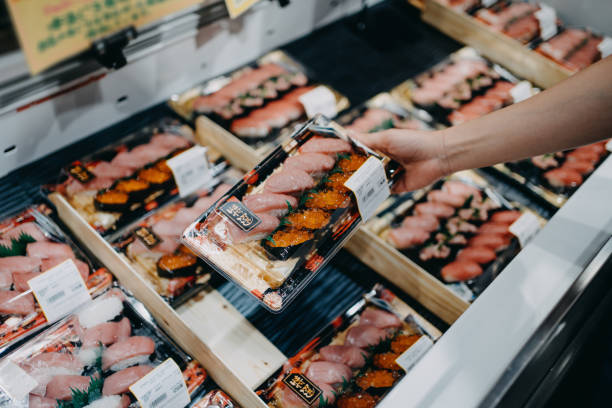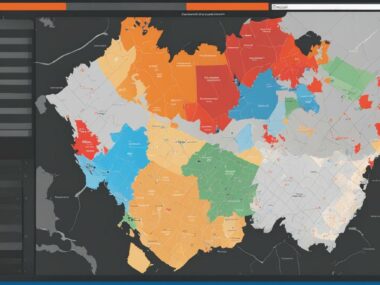Is packaged foods a good career path? Packaged foods, also known as processed or convenience foods, have become a staple in the modern diet due to their convenience, affordability, and longer shelf life.
The packaged foods industry has witnessed a rapid growth in recent years, and as a result, many career opportunities have emerged in this sector.
The industry involves various aspects such as food processing, packaging, distribution, marketing, and sales, providing diverse career paths for individuals with different skill sets and interests.
However, the question remains: is a career in packaged foods a good choice?
In this article, we will explore the pros and cons of a career in the packaged foods industry and provide insights into the required skills, education, job outlook, and potential growth opportunities in this field.
Also Read:
What Do Consumer Non-Durables Jobs Pay?
Is EDP Services a Good Career Path? (New Update)
Is Packaged Foods a Good Career Path?
A career in packaged foods can be a good option for individuals interested in the food industry.
The sector provides diverse career paths and opportunities for growth and development.
Advantages include the potential for high salaries, stability, and opportunities for advancement.
However, the industry also presents challenges such as long working hours, high-stress levels, and limited creativity due to standardized processes.
Additionally, concerns about the health and environmental impacts of packaged foods may affect job satisfaction.
Overall, whether or not a career in packaged foods is a good fit depends on an individual’s interests, skills, and personal values.
Advantages of a Career in Packaged Foods
A career in packaged foods can offer several advantages for individuals seeking employment in the food industry.
Firstly, there are a variety of positions available, including food processing, packaging, distribution, marketing, and sales, providing a range of career paths.
Secondly, the industry is constantly growing, which means job security and opportunities for career advancement.
Thirdly, salaries in the packaged foods industry can be relatively high.
Fourthly, working in a structured environment with standardized processes can result in more predictable workloads and a lower stress level.
Lastly, innovation and technological advancements in the industry provide opportunities for creativity and problem-solving.
Challenges of Working in Packaged Foods Industry
Working in the packaged foods industry can present several challenges.
Firstly, the industry can be fast-paced and demanding, requiring long hours and sometimes working under pressure.
Secondly, the nature of the industry can be repetitive and standardized, which can limit creativity and job satisfaction.
Thirdly, there may be concerns about the health and environmental impact of packaged foods, which can conflict with personal values and lead to job dissatisfaction.
Fourthly, the industry can be highly competitive, with a high demand for skilled professionals.
Finally, there can be significant regulatory and safety compliance requirements that can add to the workload and create additional challenges.
Required Skills and Education for Careers in Packaged Foods
A career in packaged foods requires a combination of technical and soft skills.
Technical skills may include knowledge of food processing, packaging, and quality control, as well as familiarity with industry-specific equipment and software.
Soft skills, such as communication, teamwork, and problem-solving, are also important.
Entry-level positions may require a high school diploma, while more advanced roles may require a college or university degree in food science, packaging, or a related field.
Relevant certifications, such as those in food safety or quality assurance, can also be beneficial.
Additionally, ongoing training and professional development can help individuals stay up-to-date with industry advancements and improve their career prospects.
Salary and Job Outlook in the Packaged Foods Industry
The packaged foods industry offers a wide range of career opportunities with varying salaries.
Entry-level positions may start at minimum wage, but salaries increase as experience and responsibilities grow.
Salaries can also vary depending on the specific role and industry sector, such as food processing, packaging, or distribution.
According to the Bureau of Labor Statistics, the median annual wage for food processing workers was $30,620 in May 2020.
The job outlook for the industry is generally positive due to population growth, rising demand for convenience foods, and technological advancements.
However, competition for jobs can be intense, and candidates with relevant skills, experience, and education may have an advantage.
Potential Growth and Development Opportunities
The packaged foods industry is constantly evolving, which provides opportunities for growth and development.
There are several potential areas for advancement, such as moving from an entry-level position to a managerial role, or transitioning from a technical role to a more strategic one.
The industry also offers opportunities for entrepreneurship, such as starting a food packaging or distribution business.
Additionally, technological advancements in the industry provide opportunities for learning new skills and staying up-to-date with industry developments.
Pursuing ongoing education and training can also improve an individual’s career prospects and potential for growth within the industry.
Workplace Culture and Diversity in Packaged Foods Industry
Workplace culture and diversity are important factors to consider when pursuing a career in the packaged foods industry.
The industry is diverse, employing individuals from different cultural backgrounds and with varying skill sets.
As a result, companies that promote diversity and inclusion can benefit from a wider range of perspectives and ideas.
However, there may be challenges in promoting diversity and inclusivity in a fast-paced and competitive industry.
Additionally, the industry has a reputation for being male-dominated, but efforts are being made to increase representation and create a more equitable workplace culture.
Ultimately, companies that prioritize workplace culture and diversity can attract and retain a talented and engaged workforce.
How to Get Started in a Packaged Foods Career
Getting started in a packaged foods career requires a combination of education, skills, and experience.
Individuals interested in the industry can start by researching the different career paths available and identifying which roles align with their interests and skill sets.
Relevant education and training can include obtaining a degree in food science, packaging, or a related field, as well as relevant certifications such as food safety or quality assurance.
Building experience through internships, part-time work, or entry-level positions can also be beneficial.
Networking and building connections within the industry can also help open doors to new opportunities.
Additionally, ongoing education and training can improve career prospects and potential for growth within the industry.
Conclusion – Is Packaged Foods a Good Career Path?
In conclusion, a career in packaged foods can be a good option for individuals interested in the food industry.
The industry offers a range of career paths, job security, opportunities for advancement, and competitive salaries.
However, it also presents challenges such as a fast-paced and demanding work environment, repetitive tasks, and concerns about the health and environmental impact of packaged foods.
Required skills and education may include technical and soft skills, as well as relevant certifications and ongoing training.
The job outlook is generally positive due to population growth and technological advancements.
Pursuing a career in packaged foods requires a combination of education, skills, experience, and a willingness to adapt to the changing industry landscape.
Also Read:
Is Auto Parts O.E.M. a Good Career Path? (Read Now)
How to Get Film Production Lawyer Jobs







1 comment